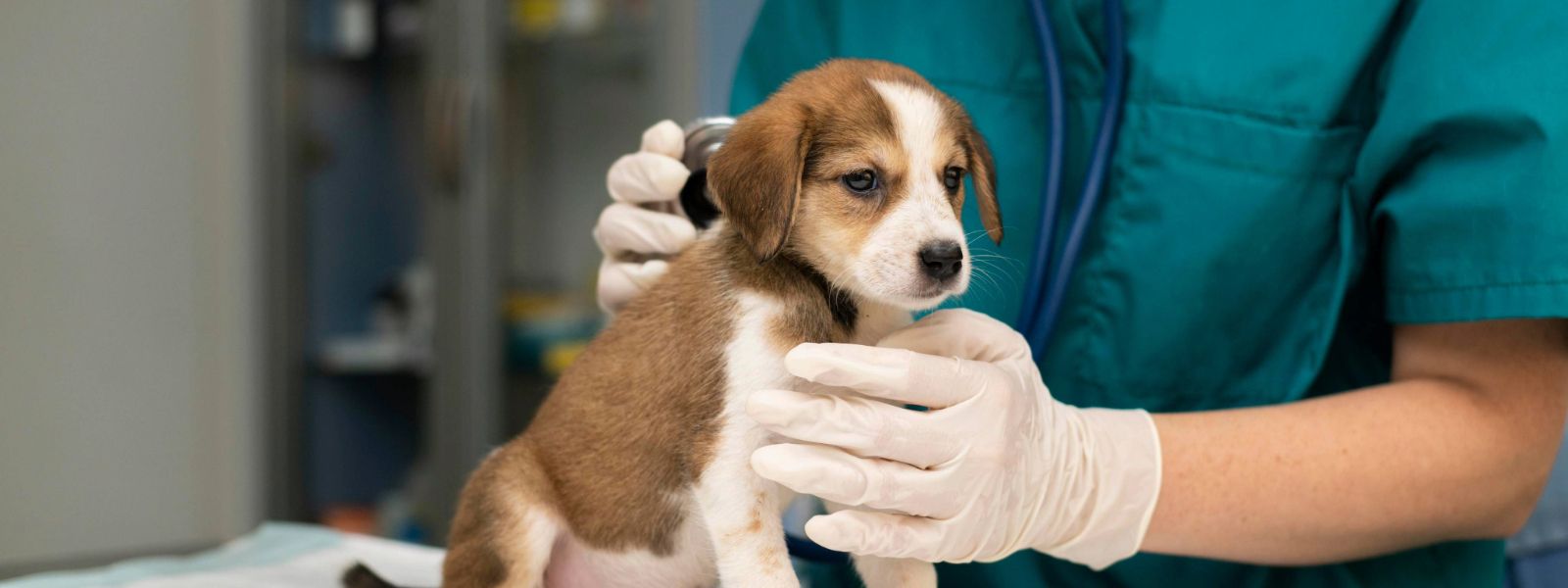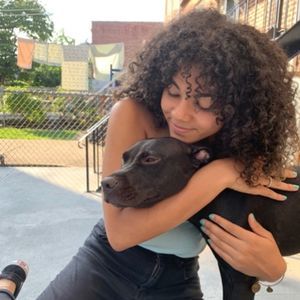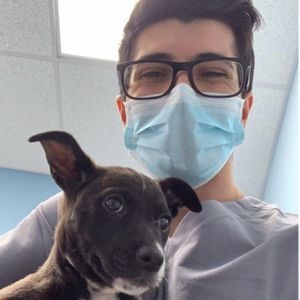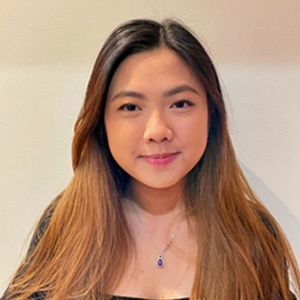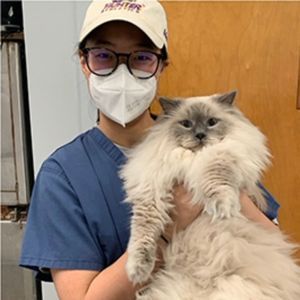2025 Matriculants
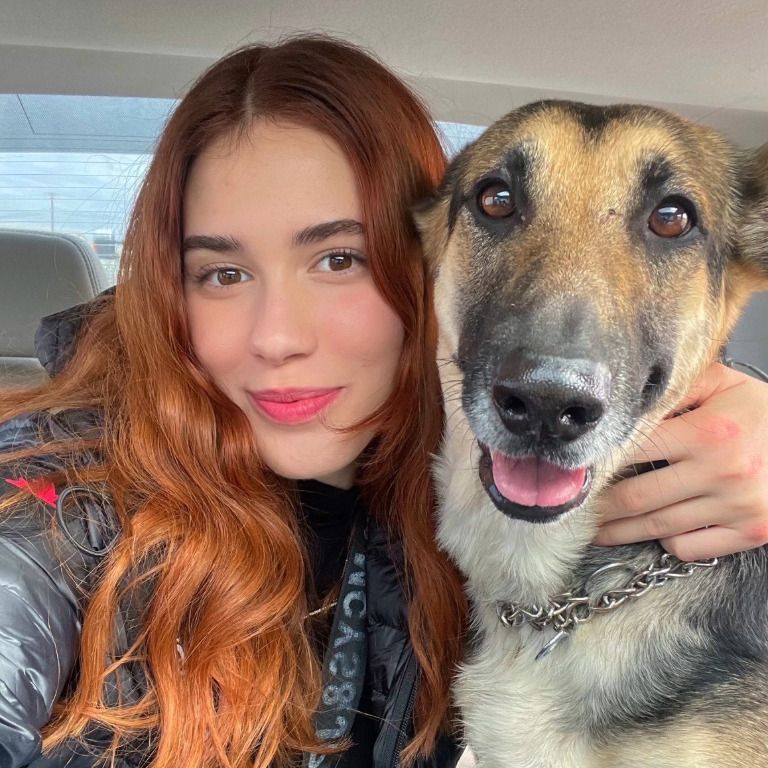
Name: Layla Alshameh
Major: Human Biology
Minor: Certificate of Business Studies, FS Minor in Chemistry
Overall GPA: 3.7
Graduation Year: 2023
Matriculation Year: 2025
Q: Which school will you be attending?
A: Cornell University College of Veterinary Medicine
Q: What drew you to this particular health field?
A: Whether it was nursing a wounded bird back to health or binge-watching pregnancy animations on YouTube, I have always been fascinated by the natural world and driven by an insatiable curiosity for science. Though I started on a pre-med track, working with therapy animals—and later volunteering at the Animal Haven shelter—revealed that veterinary care demands as much creativity as compassion. I’ll never forget the clever way our shelter’s veterinarian distracted a kitten’s post-surgical pain to craft a one-of-a-kind treatment plan—an experience that shifted my career trajectory in an instant.
In general practice, I saw firsthand how innovative therapies like platelet-rich plasma injections and cryotherapy can transform standard treatments, solidifying my commitment to veterinary school. A Columbia symposium introduced me to DVM/PhD leaders such as Dr. Melissa Nashat, whose work in rodent neurological models demonstrated how veterinary medicine fuels biomedical research. During my senior human biology thesis, I investigated veterinary medicine’s evolving impact on animal and human health, emphasizing veterinarians’ crucial role and connection to the One Health initiative. This motivated me to explore lab animal science and pursue a position as a veterinary assistant at Rockefeller University. At this research facility, I collaborated with scientists. I bridged their research with the lab animals my team and I care for—exploring topics including vocalization in finches and assisted reproductive techniques in marmosets. Being in the middle of the intersection between animal health and groundbreaking science showed me veterinarians’ vital responsibility in research.
My journey into veterinary medicine has been a dynamic blend of academic exploration and hands-on experience. I find profound inspiration in veterinarians’ pivotal role in advancing modern medicine—across all species, including our own. These diverse experiences fuel my dedication to continuous learning in veterinary medicine, where I eagerly navigate animal care and contribute to its rapidly advancing evolution.
Q: What extracurricular activities did you participate in?
A:
- The Rockefeller University — Veterinary Services Assistant
- Animal Clinic of Long Island City — Veterinary Assistant
- The Schwarzman Animal Medical Center — Volunteer
- Pony Power Therapies — Volunteer
- Tutoring — Freelance Private Tutor
- Presentation - The Evolving World of Veterinary Medicine — Volunteer
- The Urban Outreach Center— Intern
- Bergen Diyanet Camii Mosque — Volunteer
- Animal Haven — Volunteer
- Urgent Care Medical Center — Student Intern
- Summer Clinical Oncology Research Experience (SCORE) Program — Program Participant
- Scientific Talk - PARP1 as a New Avenue for Detecting and Treating the Brain Cancer Glioblastoma Multiforme (GBM) — Presentor
- Bergen County Clerk — Communications, Marketing, Social Media Intern
- Peer Health Exchange — Educator
- Bergen County Protect & Rescue Foundation — Volunteer
- Varsity Volleyball Team at Bergen County Academies- Athlete
- Teaneck Volunteer Ambulance Corps — EMT Volunteer
- Graduate Certificate - Mini-Med School Program at Rutgers University - Student
Q: How many hours on average did you spend studying for your courses per week?
A: It varied by course, but my upper-level science classes required the most focus. As a hands-on learner, I often taught the material to others – a powerful trick that sharpened my understanding and identified any gaps. I also took advantage of creative study tools, like apps that turn notes into podcasts, which made even my commutes productive. My routine was a mix of solo deep dives and group discussions, helping me approach the same concepts from different perspectives and truly make the learning stick.
Q: Did you use a test prep course?
A: I did not, as most veterinary colleges do not require any standardized tests.
Q: Did you take a GAP year? If so, why?
A: Yes, I took about two gap years to gain more hands-on veterinary experience and strengthen my application. More importantly, it gave me the chance to fully immerse myself in the field, ensuring that this challenging – and EXPENSIVE – path is truly the right fit for me.
Q: What do you consider to be your strengths in your application?
A: I believe my strongest assets were my creativity and storytelling skills. For example, rather than a typical list, I chose to present my experiences through a vivid narrative that highlighted key lessons and memorable moments. Combined with diverse hands-on experiences, this approach helped me craft a well-rounded, authentic application that stood out.
Q: Did you apply nationally?
A: I applied only to accredited schools in the U.S., mostly on or near the East Coast, with a few in the Midwest and one on the West Coast.
Q: How did the Pre-Health Advising Office help you achieve your goals?
A: The Pre-Health Advising Office offered invaluable guidance and support, especially as I transitioned from pre-med to vet med. We had multiple brainstorming sessions where they helped me shape my personal statement and work experiences into memorable and compelling stories. The mock interview was also a game-changer—it boosted my confidence and polished my answers so I could shine under pressure.
Q: What advice do you have for others?
A:
- Track Your Journey: Keep a running document of memorable experiences, unique cases, and key learning moments throughout your undergrad and gap years. Include both veterinary and non-veterinary experiences to showcase your diverse skill set and growth. You can draw back on this for your application essays and interviews!
- Understand Prerequisites: Research each school’s requirements, prerequisites, and acceptable substitutions well before applying. This will prevent last-minute surprises and ensure you’re fully prepared.
- Letters of Recommendation: Request recommendations early, especially if you plan to highlight a specific specialty in your interviews. If possible, secure a letter from a board-certified veterinarian in your field of interest.
- Mind the Deadlines:
- The VMCAS application is due mid-September, but it must go through a verification process that can take up to two weeks.
- Thus, submit your transcripts ASAP and aim to submit your application by the latest mid-August, because no edits can be made after that deadline!
- VMCAS offers fee waivers on a first-come, first-served basis. If you plan to apply for one, make sure your application is ready, as you’ll have a limited time to use the waiver once it’s
- granted.
Remember, most schools do not have rolling admissions, meaning they start reviewing all the applications after the final deadline.
- Secondary Applications: Some schools have additional applications and fees separate from the VMCAS. Double-check each program’s website and reach out for fee waivers or coupon codes (this helped me save some money!)
- Connect Early: Don’t hesitate to reach out to admissions offices with questions or concerns. Attend VMCAS workshops and network early to strengthen your application.
- Know the Numbers: Research acceptance rates, out-of-state student statistics, and program-specific requirements. Some schools accept only a small percentage of out-of-state applicants, so keep that in mind.
- Download and Review: Once your VMCAS application is complete, download a copy for your records.
- Start Early: While the program application officially opens in May, you can (and should) begin gathering your materials and planning your approach as early as possible (I started in March).

